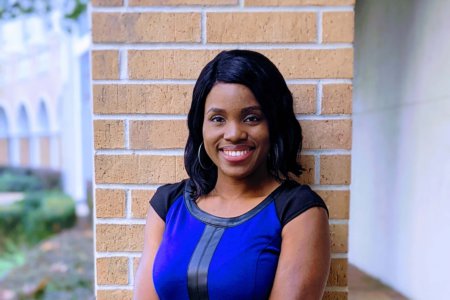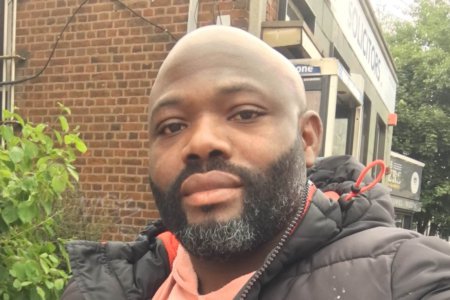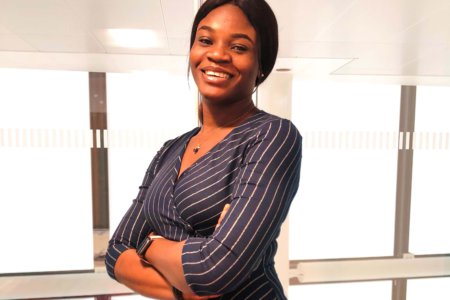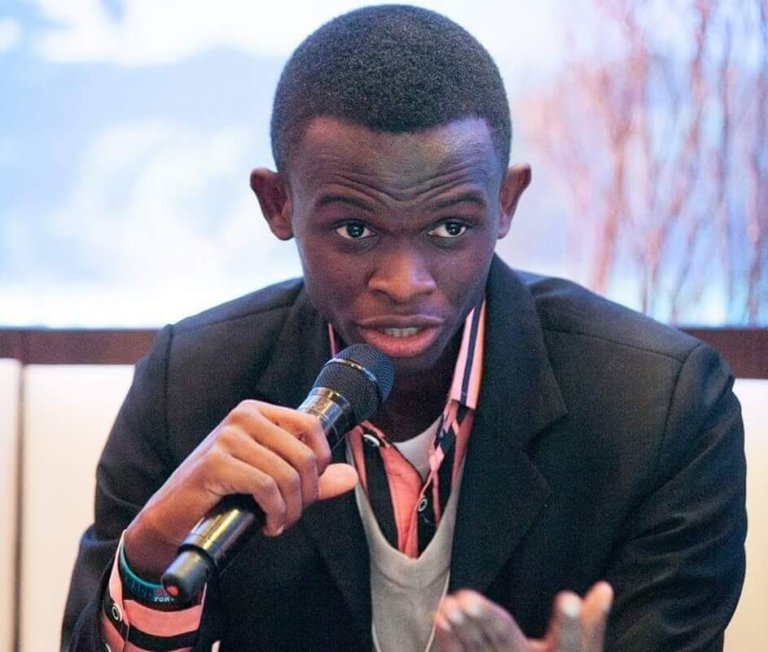
A man who moves a mountain begins by carrying small stones — in Ebenezar Wikina’s case, he is the man and the mountain is the hurdles international students have to jump through to be seen as qualified by Western universities.
When Nexford University asked Wikina to prove his English proficiency, he flipped.
“I personally believe that it’s a crime for the English proficiency tests in English-speaking countries especially knowing that they cost up to US$250 (three times the minimum wage in Nigeria). The results expire every two years as well,” he tells us.
“This means if I take the IELTS to study in Australia before I graduate from my bachelor’s programme, my first IELTS would have expired and I would have to prove it once again by paying another US$250. That sounds like all shades of wrong to me when you consider that there are 25 English-speaking countries in Africa.”
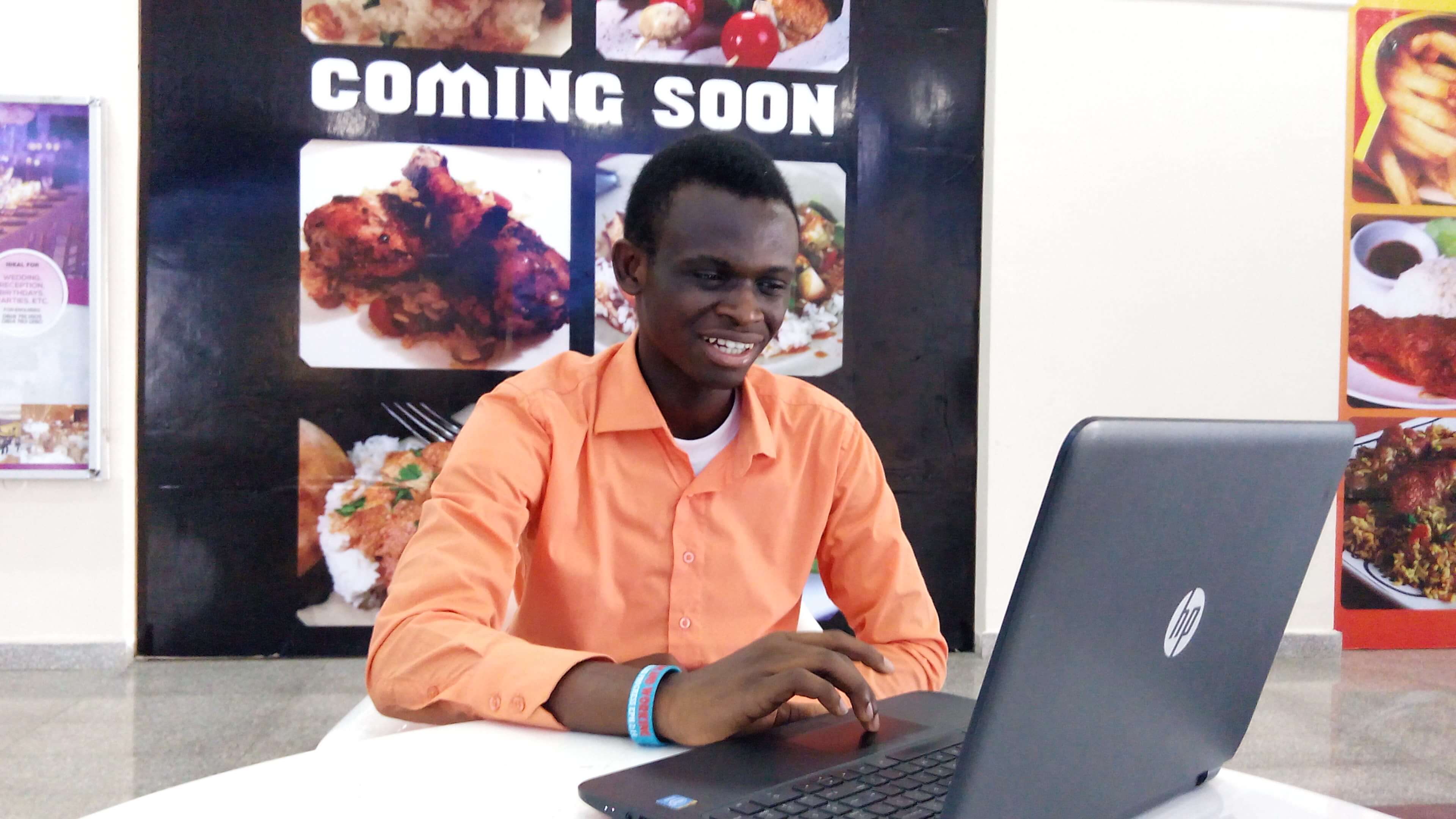
Wikina is against the test required from Africans in commonwealth nations and now is a strong advocate for this policy change. Source: Ebenezar Wikina
Their heated conversation led the school to introduce a new policy called the Academic Evaluation Pending (AEP). “This allows prospective students to take their first course at Nexford and have their grades approved if they understand English or not. However, Nexford is just one uni out of millions,” he goes on to say.
Well, Rome wasn’t built in a day but Wikina is certainly living proof that change for good can happen. We talked to this advocate on the change of English proficiency policies about his journey and his studies abroad:
Walk us through your interest in journalism.
At seven years old, I already knew about the national policy issues in Nigeria and memorised the names of all the network reporters. Fast forward to secondary school, I started saving my lunch money and one of my first Christmas gifts to myself was a world receiver radio.
Today, when I think about my written work and features on global news platforms I used to follow religiously as a child, I’m sure the 10-year old me would be very proud.
Walk us through your outstanding educational journey. What made you want to go abroad in the first place?
Way before smartphones, I’d always been interested in the world around me. It’s important to mention that I graduated from high school when I was 15 years old. Sadly, I was one of the victims of Nigeria’s broken tertiary admission system.
There are more applicants outnumbering the total number of unis in Nigeria (171 unis for 180m population compared to the US that has over 5,000 for a 320 million population). Only one in four applicants secure admission into uni in my country.
I was one of three who never made it in despite rewriting the uni matriculation examinations four times. During that time, I spent four years at home and I’m grateful because it opened my eyes to the power of the internet. Then, in 2010, I studied electrical and electronic engineering at the Rivers State College of Arts and Science and graduated top 5% of the class.
I decided to follow my dreams and enrol in a four-month broadcast presentation programme. In 2016, I took a lot of Massive Online Open Courses (MOOC) and continued to grow as a professional. In 2019, I got a letter from the Harvard Kennedy School’s executive education admissions committee stating that I’d been offered a scholarship for the maiden Public Narrative executive class.
After that programme, I completed a diploma in internet journalism at the London School of Journalism and completed two professional programmes at the Stanford Centre for Professional Development in Business Sustainability and Wayne State University in Public Management.
The latter was courtesy of the Mandela Washington Fellowship which I was awarded last year by the US Department of State. In addition to my busy work schedule, I’m studying for a business degree at Nexford University.
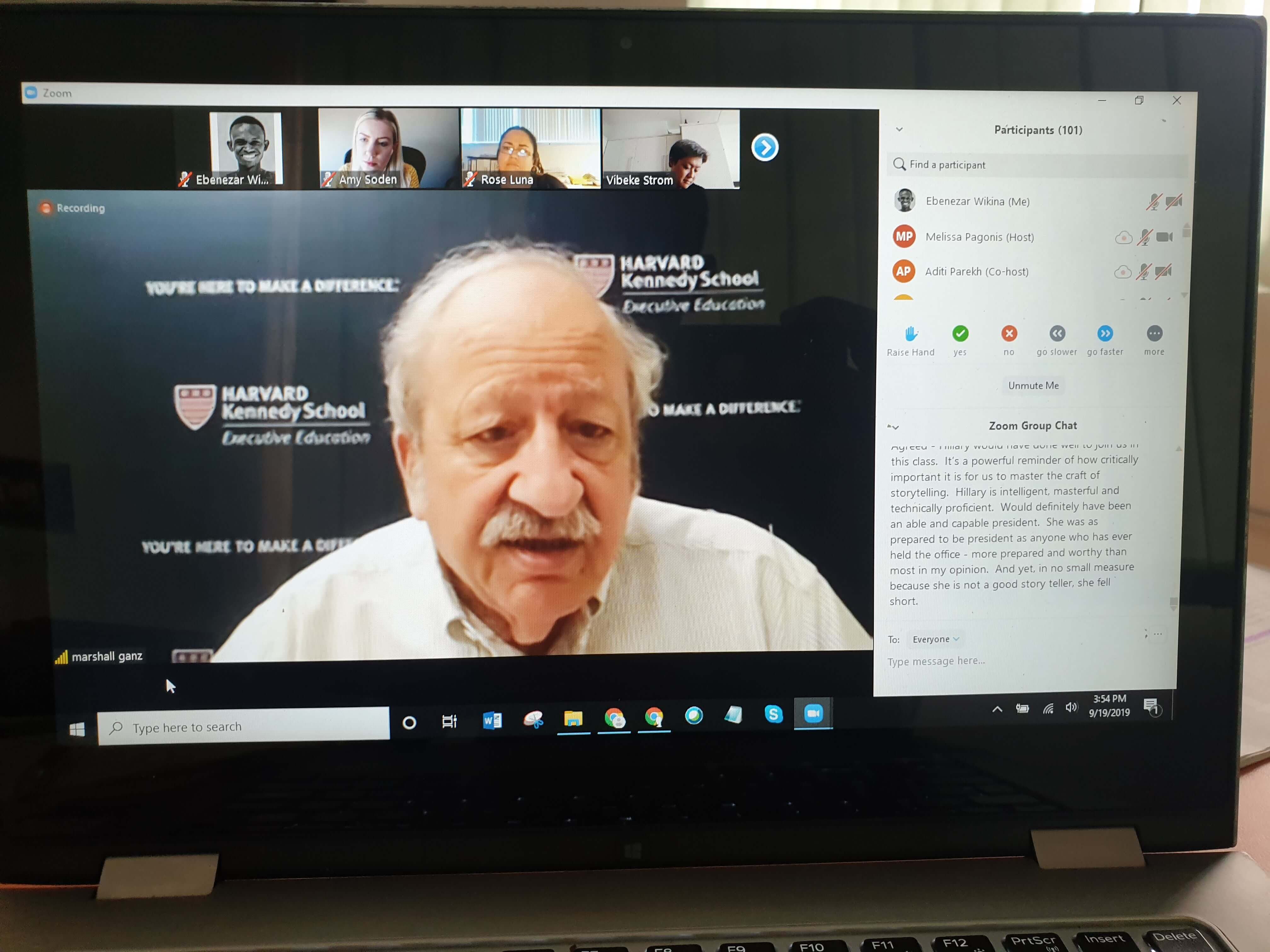
“In 2019, I got a letter from the Harvard Kennedy School’s executive education admissions committee stating that I’d been offered a scholarship for the maiden Public Narrative executive class,” Wikina says. Source: Ebenezar Wikina
All of this would not have been possible if it weren’t for the power of the internet because I’m able to do various programmes simultaneously. Thanks to virtual learning, the impossible has become possible and I document my experiences using the hashtag #LearnwithEben which has become a movement for virtual learning.
Tell us about your campaign to change the English proficiency policy change that stems from your experience at Nexford. What else do you have planned with #ReformIELTSPolicy?
The #ReformIELTSPolicy campaign was born in 2020. I always wanted to add a bachelor’s degree to my education portfolio but prior to Nexford, I didn’t find an institution that suited my time and budget.
After submitting all the mandatory documents, I was told that I had to prove my English proficiency. I sent my O-Level result, my two diploma certificates, and my certificate from Harvard as proof that I could speak English.
The admissions unit told me a four-month programme is not enough to prove your English proficiency. At that point, I flipped because it sounded very discriminatory to me.
After lots of back and forth emails, I screenshotted my replies and brought the conversation to Twitter and it went viral. Long story short, Nexford changed its policy and introduced AEP. It’s a change that doesn’t only benefit learners from Africa but many others around the world.
So I flipped.
My response:#UseYourVoice pic.twitter.com/6gaz68VJe0
— Eben (@EbenezarWikina) February 26, 2020
What about your views on coin exploitation which leads to the “need” for the English proficiency test? What should be done by institutions around the world to make this fairer?
I personally believe that it’s a crime for English proficiency tests to be conducted in English-speaking countries, especially knowing that they cost up to US$250 (three times the minimum wage in Nigeria). The results expire every two years as well.
This means if I take the IELTS to study in Australia before I graduate from my bachelor’s programme, my first IELTS would have expired and I would have to prove it once again by paying another US$250. That sounds like all shades of wrong to me when you consider that there are 25 English-speaking countries in Africa.
Think of the economic impact these tests have as well as the psychological one. I believe it’s discriminatory and racist because we were once British colonies but out of the 18 countries on the UK Home Office’s website of native English speaking countries, there’s not one African one.
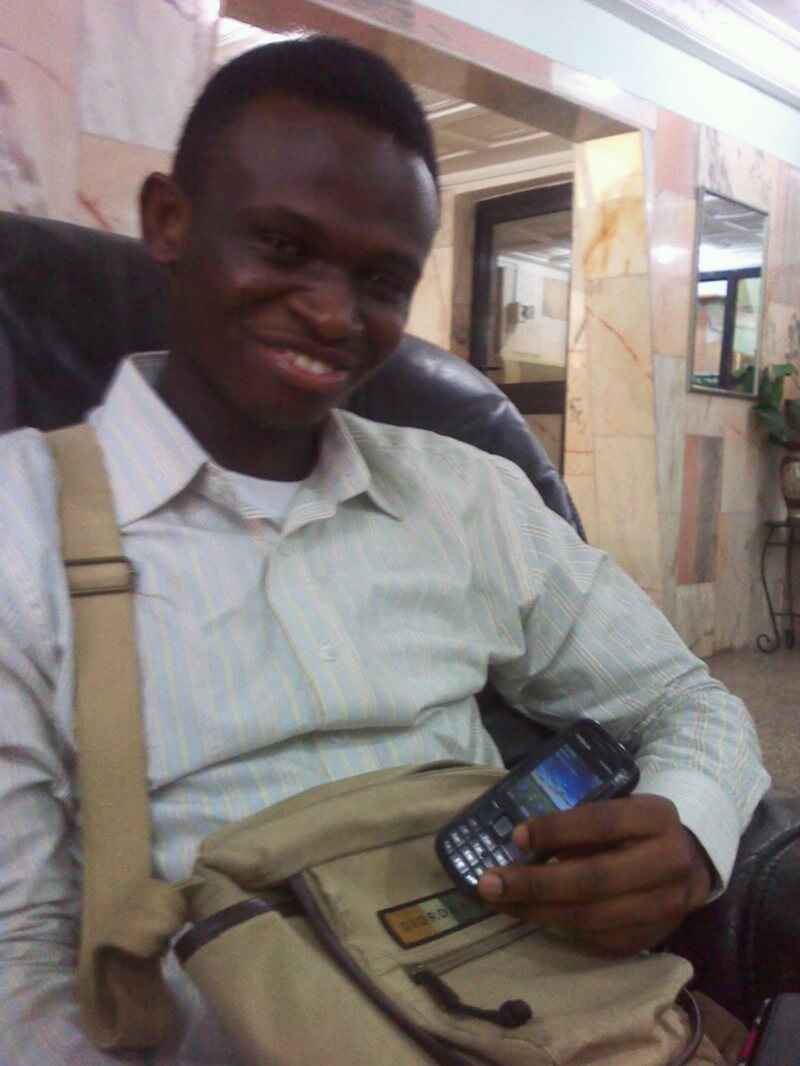
“The biggest achievement with The Stroll is that I had to do a lot of frugal innovation as I began with a simple Nokia phone,” he says. Source: Ebenezar Wikina
In an ideal situation, I would ask the University of Cambridge, the British Council and IELTS Australia (the three owners of the IELTS) to scrap the exam for Africans from English-speaking countries. But my experience working in public policy has taught me that big change starts small.
A good start would be to reduce the price of the exam to make sure it’s proportionate with the minimum wage in respective countries and remove the expiration clause. There’s no way that my English knowledge would expire.
Tell us a bit more about Policy Shapers and your career as a journalist.
It’s been a long journey since 2010 and I’ve now worked for 11 years online. I started off with cross-posting content for my friend’s website. I started an interview series called The Stroll focused on interviews with diplomats. Here, I discussed key actions for UN observances which later expanded to interviewing other world leaders.
Some of the guests featured on The Stroll include Amina Mohammed (Deputy United Nations Secretary-General), Elsie Kanza (Head of Africa at the World Economic Forum), Ken Macintosh (presiding officer at the Scottish Parliament), and Prince Haakon Magnus (Crown Prince of Norway) to mention a few.
The biggest achievement with The Stroll is that I had to do a lot of frugal innovation as I began with a simple Nokia phone. Due to this success, I was invited by Arianna Huffington (personally) to write for the Huffington Post on stories about Nigeria and the Niger Delta.
I went on to work with Al Jazeera’s Contrast VR on a virtual reality documentary of the oil spill in Ogoniland. Additionally, I also served as digital editor of City News Port Harcourt online and became the coordinator of the Niger Delta Link.
Currently, I sit on the jury of association for the International Broadcasting Awards based in London and am also a senior category judge of the Queen’s Commonwealth Essay Competition.
The other side of my career is in community development and policy. I organised West Africa’s only TEDxYouth event in 2014 and I continue to mentor other young organisers in the TED community.
To add to this, I sit on the British Council New Narratives Youth Advisory Board and serve as a member of the World Economic Forum’s Expert Network. Furthermore, I’m also a pioneer member of the Open Government Youth Collective and part of the G20s Civil Society Working Group on Education and Global Citizenship. The list goes on.
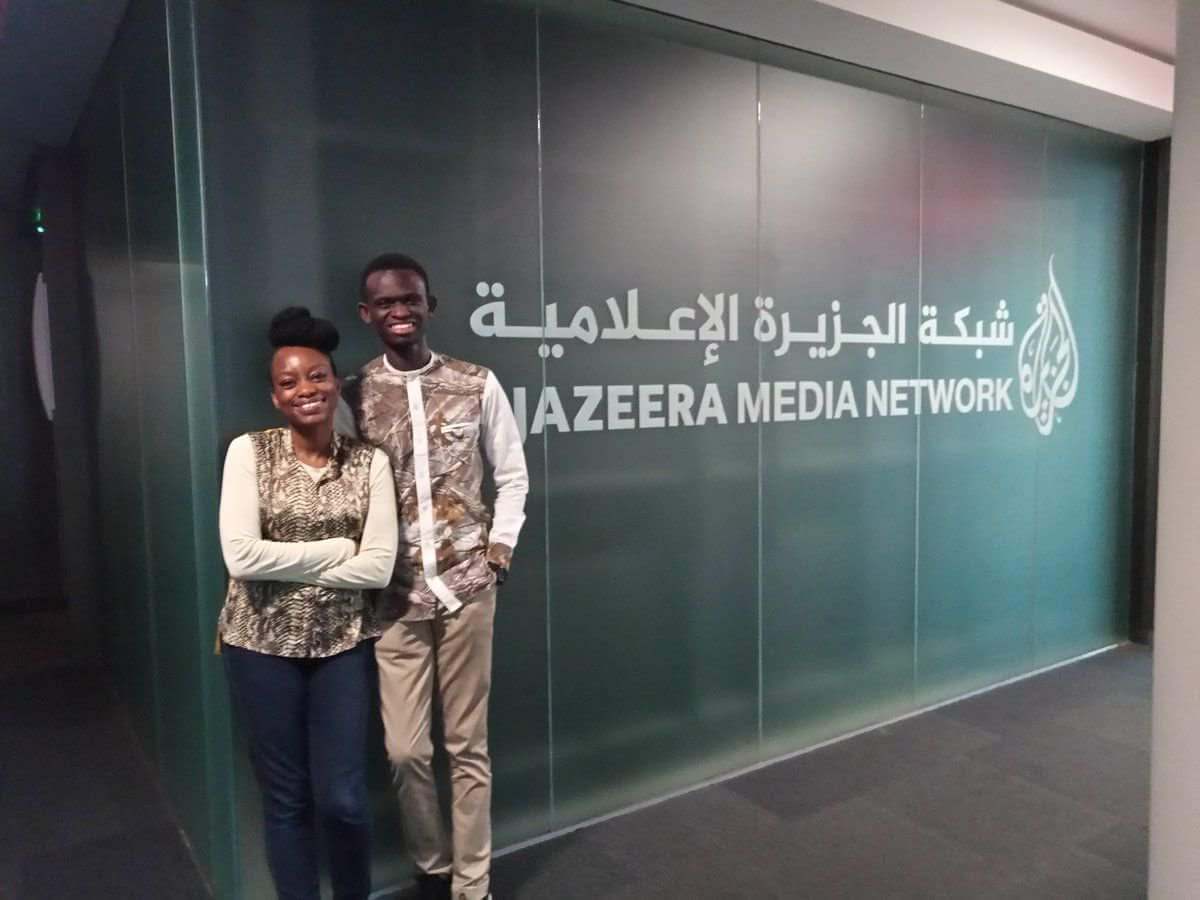
“I went on to work with Al Jazeera’s Contrast VR on a virtual reality documentary of the oil spill in Ogoniland,” Wikina says. Source: Ebenezar Wikina
I founded Policy Shapers last year to give young people a platform to contribute to policy-making at a local and international level. Last week we held a side event at the Creative Commons Global Summit to share findings from our research on how open data can impact virtual learning.
If you could go back in time for a one-on-one mentoring session with yourself, what would your advice be and why?
I think every young person should know that there are several pathways to life. People often think that the only career is birth, school, work, retirement, and death. The truth is that there are many options available as my own career has shown.
I am schooling 10 years into my career and I’m continuing to find ways to customise my path. Everyone’s journey is unique and something I would tell my younger self is to believe more is, “Everyone is a star, you just have to find your sky”.
What matters more to you: work satisfaction, salary, social life, or a work/life balance and why?
At this stage in my life and career, everything matters to me. Work satisfaction is the reason I made the move from media to development because I started to feel I could do more about the issues I was writing about.

“I think every young person should know that there are several pathways to life. People often think that the only career is birth, school, work, retirement, and death. The truth is that there are many options available as my own career has shown,” he advises. Source: Ebenezar Wikina
The development makes me feel like I’m contributing my quota to society — it’s not to say media isn’t important because without information we are all finished. Money isn’t everything but a good salary and multiple streams of income are important.
When you’re beginning your career don’t let salary stop you from growth. I did a lot of free work and volunteering but that was because I needed the platform and experience.
However, after over one decade of learning and growing, I can now begin to name my price as my intellectual value continues to increase. Social life is where I struggle because Twitter (social media) is the only social thing I do.
I hang out time-to-time with my close friends and my wife but it’s usually not enough. With everything I have to do on a daily basis, it’s hard to find the time. As for the work/life balance, I really don’t know what to say because I have zero.
I try to watch movies with my wife and maybe rest on Saturdays but do you see how long this interview is? *laughs* This is just about 50 to 60% of what I do every day. I can’t wait to pass this phase of my life so that I can get to a time when I would begin to have more time for family and important things.








